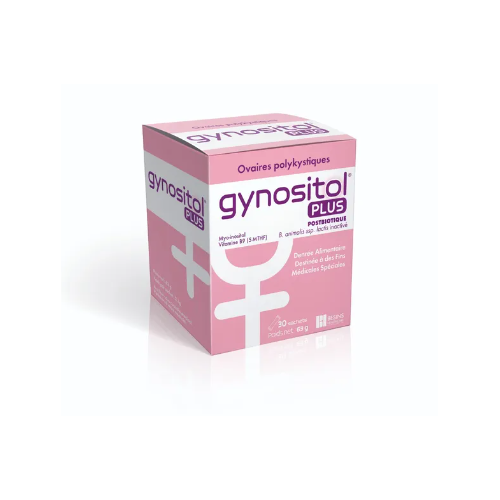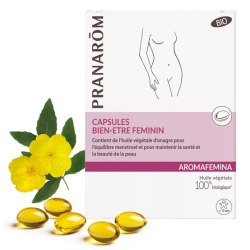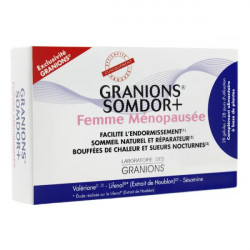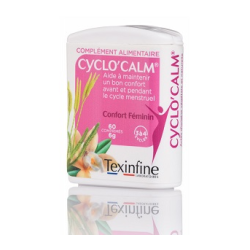



Gynositol Plus PostBiotic, 30 Sachets
Gynositol Plus PostBiotic from LABORATOIRE BESINS is a foodstuff for special medical purposes based on myo-inositol, vitamin B9 (5-MTHF) and an inactivated postbiotic Bifidobacterium animalis ssp. lactis (strain CECT8145), formulated for the nutritional needs of women with polycystic ovaries prone to metabolic disorders (overweight, metabolic syndrome, dyslipidemia, etc.).
Gynositol® Plus contains :
- myo-inositol, a nutrient naturally provided by the diet. It is mainly found in legumes, citrus fruit, melon, almonds and walnuts, but these sources are insufficient for women with polycystic ovaries;
- vitamin B9 (5-MTHF), a member of the folate family. Low folate status in the mother increases the risk of neural tube defects in the developing foetus. The beneficial effect is obtained by consuming 400 µg of folic acid daily, at least one month before conception and up to three months after conception;
- a postbiotic, the heat-inactivated ferment B. animalis ssp. lactis.
Specific References
2 sachets a day, preferably 1 sachet in the morning and the other in the evening, to be diluted in a glass of water or dissolved in the mouth.
If pregnancy is envisaged, Gynositol® Plus should be taken as soon as pregnancy is planned, and may be continued throughout the pregnancy.
PRECAUTIONS FOR USE
Not recommended in case of allergy to any of the ingredients.
Use under medical supervision.
Not to be used as sole source of nutrition.
Do not exceed recommended daily dose.
Keep out of reach of children.
STORAGE CONDITIONS
Store away from heat, light and moisture.
Per 2 sachets: myo-inositol (4,000 mg); bulking agent: maltodextrin; inactivated Bifidobacterium animalis ssp. lactis (CECT8145) (6.8 mg equivalent to 2,109 cells); anti-caking agent: silicon dioxide (E551); calcium L-methylfolate (MTHF) (470 µg equivalent to 400 µg vitamin B9, i.e. 200% of the nutritional reference value [NRV]).


